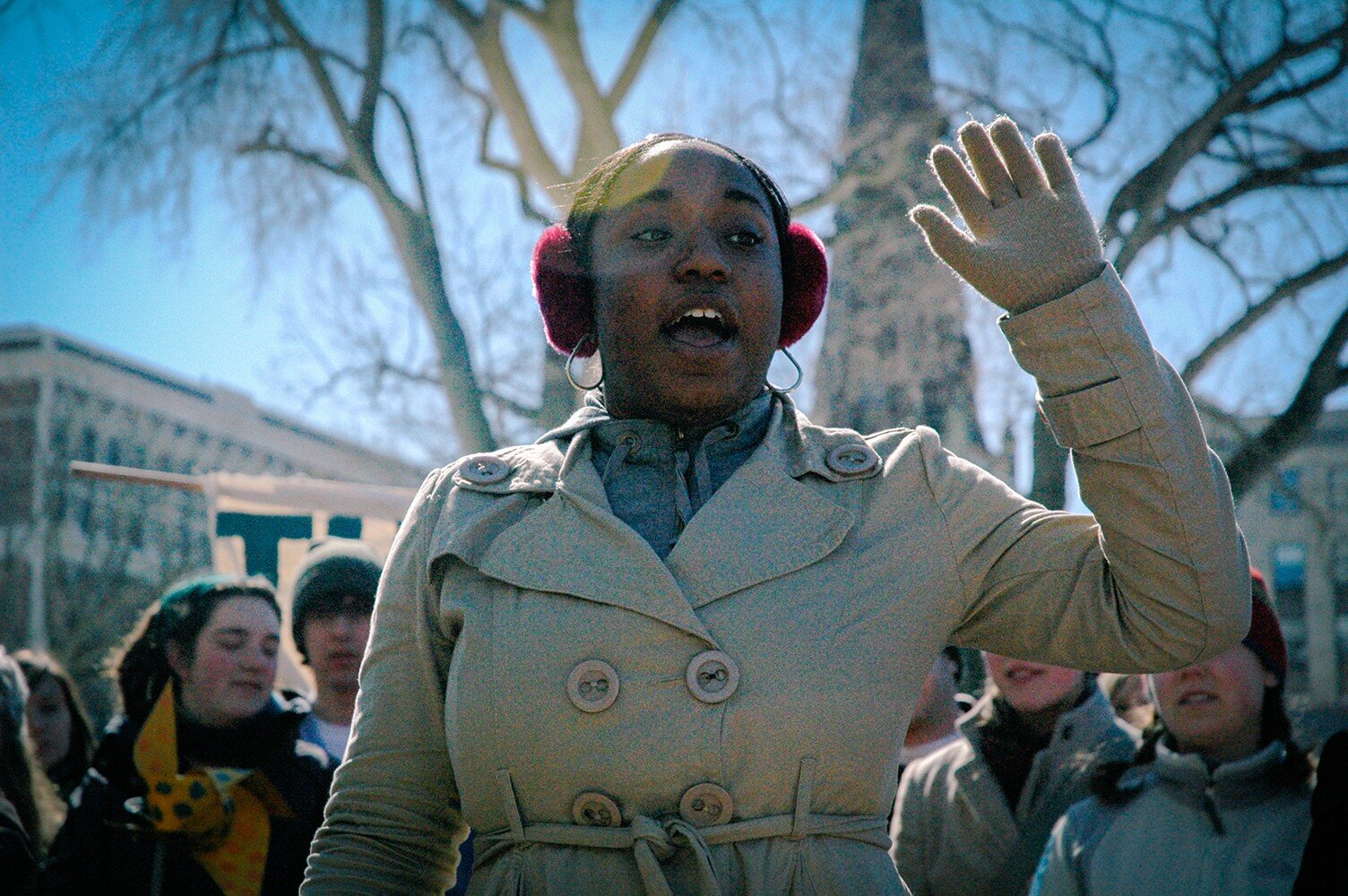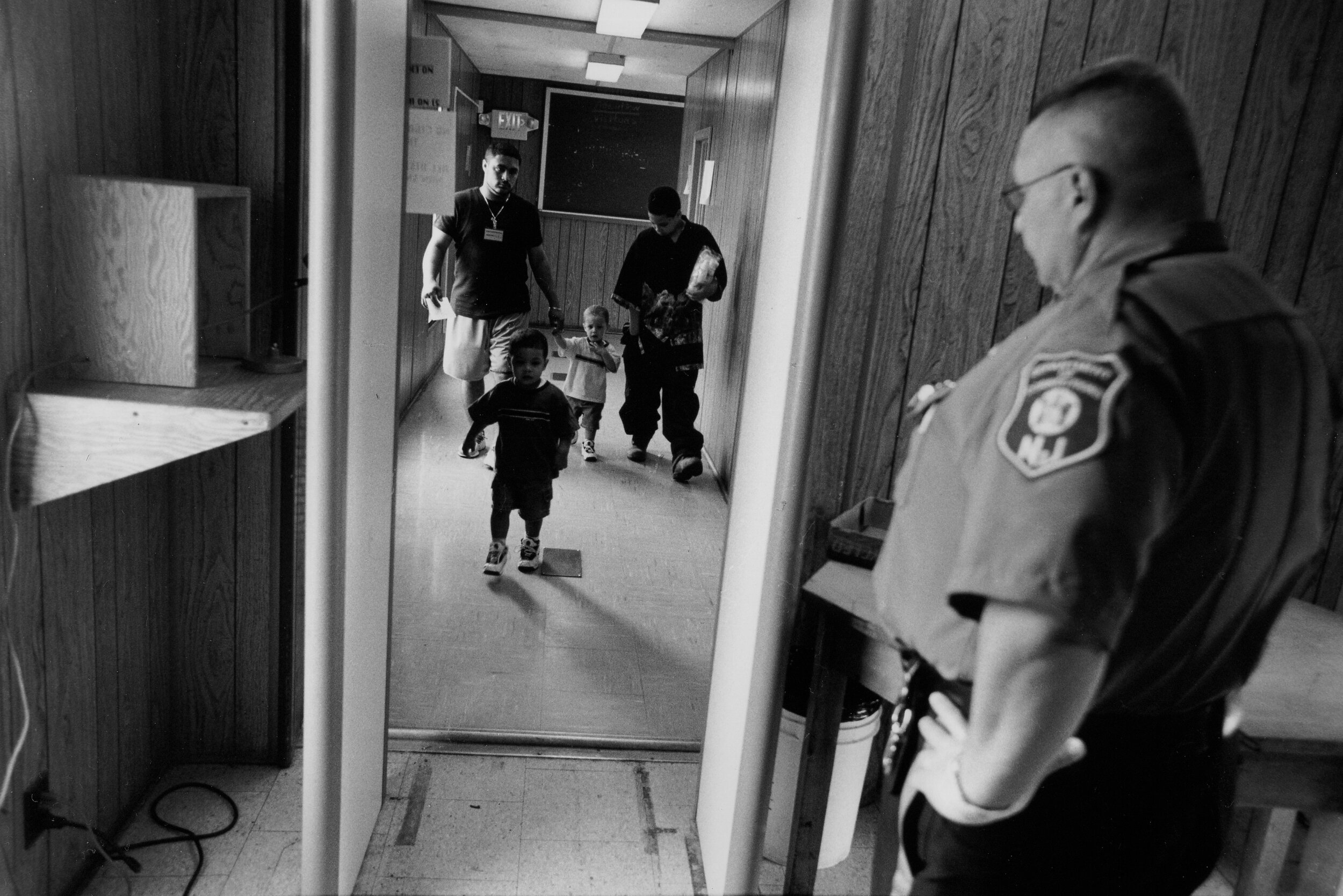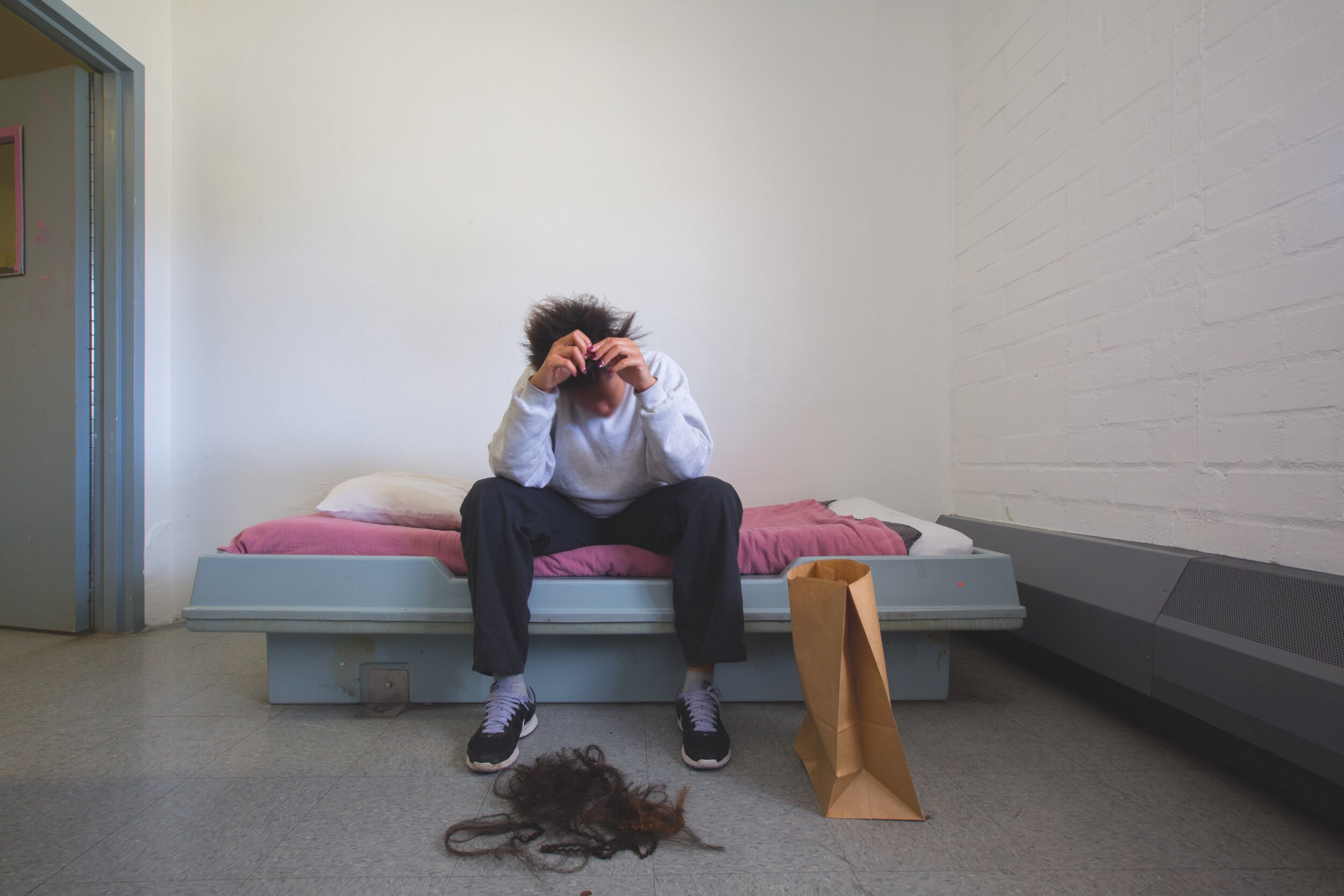Photo: Rich Pedroncelli | AP
COVID-19: MY EXPERIENCE IN PRISON
By Jimmie Cohron
I sat on the top bunk of my eight-by-ten cell. As a sixty-two year old man, I suffered from heart disease, anemia, and a worry of possibly having cancer. With COVID-19 in the air, I was the definition of "vulnerable population." Yes, I am serving a life sentence, but I don't want to die.
The prison still wasn't handing out masks or sanitizer. There was no social distancing. I ripped-off some disinfectant from my job site in the metal shop, and used it to wipe down my cell twice a day.
“I made my own mask out of material found in some respirators used in the grinding room”
I made my own mask out of material found in some respirators used in the grinding room until my brother told me the carbon fibers in them could cause lung damage. I made one out of cloth material. I did my best to avoid people. I stopped going to the chow hall, instead, I subsisted on canteen food I had in my cell: dehydrated beans and rice, potato chips, cheese, peanuts, oatmeal, and raisins.
When the prison finally started to take the virus seriously, they shut down the visiting room, club activities, chapel services, and all programs run by outside volunteers. They started providing masks, but didn't make wearing them mandatory. Most inmates didn't wear the masks, and neither did most of the staff. They put spray bottles of disinfectant by the phones in the buildings, but not the outside yard phones. The rags provided were used again and again. The phones were elbows apart from each other. Whenever I got off the phones I headed straight back to the cell, scrubbed my hands and face, and climbed back on the bunk.
The first reported case at Oregon State Penitentiary was in April, from an employee who worked in the housing unit I lived in. The inmates in my unit were kept separate from the rest of the general population. We could not work, we ate last, and had our own yard periods. Although we were kept separated from the rest of the population, we were still allowed to mingle within the unit. We gathered at the card tables, television room, exercise area, and crowded the phone booths. I still had to worry about my cellmate who didn't take the virus seriously.
“Everyone knew that if they tested positive, they would be sent to…where all the COVID-19 cases from other institutions were being housed.”
After the unit went into quarantine the nurses started coming around to ask us if we wanted to be tested for the virus. Everyone knew that if they tested positive, they would be sent to the segregation unit where all the COVID-19 cases from other institutions were being housed. I didn't want to be tested for fear of the outcome, but did so anyway because my medical problems render me more vulnerable to the effects of the virus.
Ten of us took the test. We were told it would take three days for the results to return. For three days I sweated the outcome. On the third day, the nurses came back into the unit and had a few individuals roll up their property, they were heading to the segregation unit. I was not one of them, but the virus was spreading in our unit. Afterwards, the nurses returned to ask people how they felt and if they wanted their temperature checked. At first, I wanted mine checked, until I remembered that if I ran a temperature I would be sent to the segregation unit. I told them I was fine and I didn’t want to be bothered anymore.
“On Memorial Day I started feeling sick…I did not want to self-report for fear of knowing the outcome”
On Memorial Day I started feeling sick. My chest hurt as if I were having a heart attack. I had a pounding headache. My eyes burned and I had a runny nose. I was worn out. I did not want to self-report for fear of knowing the outcome, but the symptoms grew worse. Eventually, I informed the block officer and was sent to medical. The nurse checked my vitals, and they were normal. I figured I would be sent back to the unit; instead, I was placed in isolation, tested for the virus, and told to stay there until the results came back. I asked if I could go back to my cell to get my property: toothbrush, toothpaste, coffee, canteen, a cup, address books, envelopes, and television—the watch commander said no.
Once in the isolation cell, the lights were off, but I could make out wool blankets and a one inch plastic mattress on the concrete sleeping slab. The officer told me there were no pillows and that he had given me an extra blanket instead. I was so physically exhausted from the months of trying to avoid the virus that I just crawled on top of the plastic mattress, covered my head with the blankets, and went to sleep. At 5:30 the next morning, a light above my concrete sleeping slab startled me awake. It was so bright and I had no way to turn it off. I sat up on the edge of the slab and looked around the cell. The walls were covered with graffiti and dried food. There was a stainless steel toilet and sink encased in concrete, a roll of toilet paper, and a paper cup.
"Wipe the damn thing down!"
The food slot tray opened, and an officer shoved in a plastic bag that contained a bowl of cereal, a hard boiled egg, a piece of coffee cake, two packets of sugar, and a coffee. I asked the officer if I could get my property from my cell and make a telephone call. She said she'd check into it. A few hours later, she was back to pass out lunches. Again, I asked about my personal items and a phone call. The officer replied that she was working on getting me my things, but the only phone in the unit was being used upstairs for those that had tested positive for the virus, and they didn't want to cross contaminate it. "Wipe the damn thing down!" I said. A few minutes later, the captain showed up to my cell to speak with me, "I hear you’re giving my staff grief,” he said.
"Am I being punished?" I asked.
“No, you're not," he replied.
"Then why can't I get my personal property, or make a phone call?”
The captain wanted to know if I had sent him an inmate communication form requesting a phone call. I laughed and said, "do you see anything in here to write with?”
That evening I got a couple books in the mail, and an officer brought me a plastic cup, a toothbrush, and baking soda. I distracted myself with reading until the lights went out. The next day, I was brought a cordless phone and I was finally able to call my wife. Later in the day, an officer delivered five bags of my personal property: food, television, books, clothes, my guitar, soap, toothpaste, etc.
“I am back in my cell. I am home.”
My COVID-19 test was administered on the first morning of isolation. Everyday afterwards, the nurse checked my temperature and asked how I was feeling. I was still sick, but refused to admit it. I just wanted out of isolation.
On the third day a nurse and an officer came onto the tier with test results. They walked right past my cell and told someone down the tier who was negative to roll up their property. They were being sent back to the general population. A few hours later, the nurse and officer returned. Again, they walked past my cell. Again, they told someone down the tier to roll it up. Now I was sure I had the virus. Finally, the officer came back by himself and said, "Cohron, roll up".
I asked, "Where am I going?"
"You're going back to the general population."
I was still sick as I walked back to my unit. A sixty-two year old man with heart disease, anemia, and a fear of cancer, I was determined not to go through this experience again. The infection count for the virus at OSP was in the dozens. I tested negative.
I am back in my cell.
I am home.




